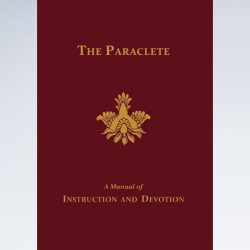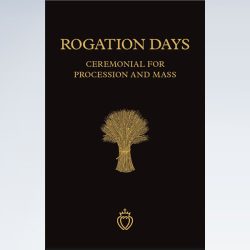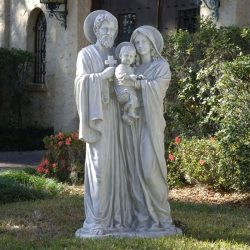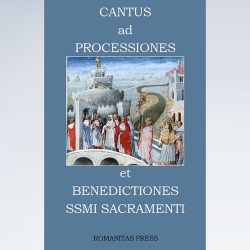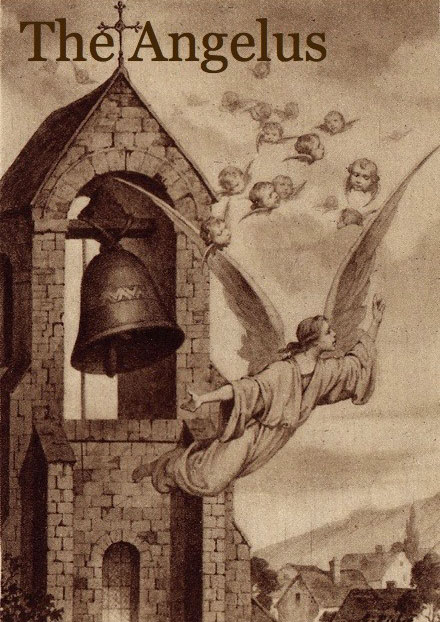

Like a heavenly messenger, the Angelus calls us to interrupt our daily, earthly routines, and turn to thoughts of God, of the Blessed Mother, and of eternity. The Angelus originated during the time of Crusades as a prayer for peace and tranquillity in the land of living and for their country.
The devotion is traditionally sung in Roman Catholic churches, convents, and monasteries (and should be recited at home), three times daily at 6:00 a.m., Noon, and 6:00 p.m. Indulgenced by Pope Benedict XIII, Sept 14, 1724.
For centuries the Angelus was always said while kneeling, but Pope Benedict XIV (r. 1740-1758) directed that the Angelus should be recited while standing on Saturday evening, and all day on Sunday. He also directed that the Regina Coeli (Queen of Heaven) be said instead of the Angelus during the Easter season.
The prayer itself is usually accompanied by the ringing of the Angelus bell, which is a call to prayer, and to strengthen Christians in piety and faith, alloyed with divine grace to disperse and destroy the forces of cruelty, and of demonic suggestion. The devil hates everything beautiful and the bells are specifically used to draw attention to the divine worship of God. “The manner of ringing the Angelus seems to have varied little since the beginning of the devotion…. Old monastic records, going back to the fifteenth century, show that the bell-ringer was directed, ‘to toll the Ave-bell nine strokes at three times, keeping the space of one Pater and Ave between each of the three tollings.’” (Source: “Externals of the Catholic Church”, 1917 Edition)
“We exhort you every day, when you hear three short interrupted peals of the bell, at the beginning of the curfew (or, in places where you do not hear it, at vesper time or nightfall you say with all possible devotion, kneeling wherever you may be, the Angelic Salutation three times at each peal, so as to say it nine times in all” (Publication of the Catholic Truth Society, 1895).

Listen to “The Angelus prayer from the “Day in the Cloister” – a chant CD available from the Virgo Sacrata shop. Audio courtesy of the Congregation of the Daughters of Mary.
The Angelus Prayer in Latin and English
| [℣.] Angelus Domini nuntiavit Mariae; [℟.] Et concepit de Spiritu Sancto. |
[℣.] The Angel of the Lord declared unto Mary [℟.] And she conceived of the Holy Ghost. |
| Ave Maria, gratia plena, Dominus tecum. Benedicta tu in mulieribus, et benedictus fructus ventris tui, Iesus. Sancta Maria, Mater Dei, ora pro nobis peccatoribus, nunc, et in hora mortis nostrae. Amen. |
Hail Mary, full of Grace, the Lord is with thee. Blessed art thou amongst women, and blessed is the fruit of thy womb, Jesus. Holy Mary, Mother of God, pray for us sinners now and at the hour of our death. Amen. |
| [℣.] Ecce ancilla Domini. [℟.] Fiat mihi secundum verbum tuum. |
[℣.] Behold the handmaid of the Lord. [℟.] Be it done unto me according to thy word. |
| Ave Maria, gratia plena, Dominus tecum. Benedicta tu in mulieribus, et benedictus fructus ventris tui, Iesus. Sancta Maria, Mater Dei, ora pro nobis peccatoribus, nunc, et in hora mortis nostrae. Amen. |
Hail Mary, full of Grace, the Lord is with thee. Blessed art thou amongst women, and blessed is the fruit of thy womb, Jesus. Holy Mary, Mother of God, pray for us sinners now and at the hour of our death. Amen. |
[℣.] Et Verbum caro factum est. |
[℣.] And the Word was made Flesh. |
| Ave Maria, gratia plena, Dominus tecum. Benedicta tu in mulieribus, et benedictus fructus ventris tui, Iesus. Sancta Maria, Mater Dei, ora pro nobis peccatoribus, nunc, et in hora mortis nostrae. Amen. |
Hail Mary, full of Grace, the Lord is with thee. Blessed art thou amongst women, and blessed is the fruit of thy womb, Jesus. Holy Mary, Mother of God, pray for us sinners now and at the hour of our death. Amen. |
| [℣.] Ora pro nobis, sancta Dei Genetrix. [℟.] Ut digni efficiamur promissionibus Christi. |
[℣.] Pray for us, O Holy Mother of God. |
| [℣.] Oremus.
Gratiam tuam, quaesumus, Domine, mentibus nostris infunde; ut qui, Angelo nuntiante, Christi Filii tui incarnationem cognovimus, per passionem Eius et crucem, ad resurrectionis gloriam perducamur. Per eundem Christum Dominum nostrum. [℟.] Amen. |
[℣.] Let us pray. |

-
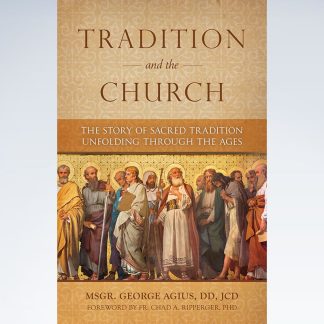 Tradition and the ChurchUS$ 27.00
Tradition and the ChurchUS$ 27.00 -
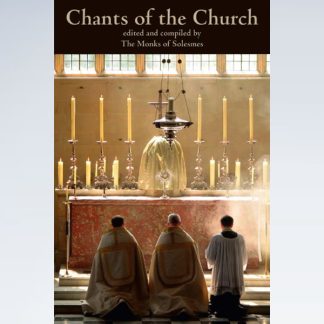 Chants of the Church by the Monks of SolesmesUS$ 25.00
Chants of the Church by the Monks of SolesmesUS$ 25.00 -
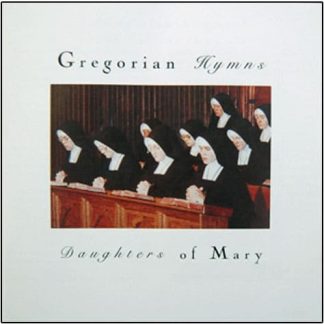 Gregorian Hymns CD by the Daughters of MaryUS$ 19.00
Gregorian Hymns CD by the Daughters of MaryUS$ 19.00 -
 A Day in the Cloister by the Daughters of Mary (Gregorian Chant and Prayer CD)US$ 19.00
A Day in the Cloister by the Daughters of Mary (Gregorian Chant and Prayer CD)US$ 19.00 -
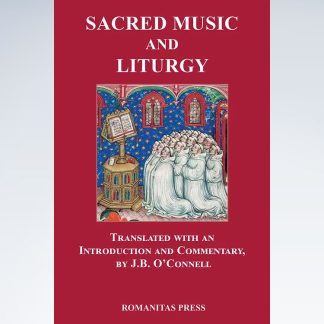 Sacred Music and LiturgyUS$ 17.00
Sacred Music and LiturgyUS$ 17.00 -
 Vespers (In Latin and English)US$ 45.00
Vespers (In Latin and English)US$ 45.00
VIRGÓ SACRÁTA is a Christian mission-driven online resource and shop inspired from the beauty of Catholic faith, tradition, and arts. Our mission is to “Restore All Things to Christ!”, in continuing the legacy of Pope St. Pius X under the patronage of the Blessed Virgin Mary. “Who is she that cometh forth as the morning rising, fair as the moon, bright as the sun, terrible as an army set in battle array?” O Mary, conceived without sin, pray for us who have recourse to Thee.

